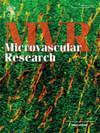Harnessing exosomal mediators for advanced wound healing: Mechanisms and therapeutic potential in angiogenesis
IF 2.7
4区 医学
Q2 PERIPHERAL VASCULAR DISEASE
引用次数: 0
Abstract
Angiogenesis is critical for effective wound healing, supplying oxygen and nutrients to regenerating tissues. In chronic conditions like diabetes, impaired angiogenesis leads to delayed healing, chronic wounds, and significant healthcare burdens. Exosomes, nano-sized extracellular vesicles derived from cells such as mesenchymal stem cells (MSCs), amniotic epithelial cells, and keratinocytes, have emerged as key mediators in promoting angiogenesis. Laden with bioactive cargos—including microRNAs, proteins, and lipids—exosomes orchestrate endothelial cell proliferation, migration, and extracellular matrix remodeling to enhance vascularization. This review explores the molecular mechanisms by which exosomes drive angiogenesis, highlighting their role in modulating signaling pathways and immune responses critical for tissue repair. We evaluate the therapeutic promise of exosome-based delivery systems, integrating insights from biological, pharmaceutical, and cell-based approaches. By leveraging these advancements, exosomal therapies offer transformative potential for managing chronic wounds and ischemic conditions, paving the way for innovative regenerative medicine strategies.
利用外泌体介质促进伤口愈合:血管生成的机制和治疗潜力
血管生成是有效伤口愈合的关键,为再生组织提供氧气和营养。在糖尿病等慢性疾病中,血管生成受损会导致愈合延迟、慢性伤口和严重的医疗负担。外泌体是来源于间充质干细胞(MSCs)、羊膜上皮细胞和角化细胞等细胞的纳米级细胞外囊泡,已成为促进血管生成的关键介质。外泌体携带生物活性物质——包括microrna、蛋白质和脂质——协调内皮细胞增殖、迁移和细胞外基质重塑以增强血管化。这篇综述探讨了外泌体驱动血管生成的分子机制,强调了它们在调节信号通路和免疫反应中的作用,这些信号通路和免疫反应对组织修复至关重要。我们评估了基于外泌体的递送系统的治疗前景,整合了生物、制药和基于细胞的方法的见解。通过利用这些进步,外泌体疗法为治疗慢性伤口和缺血性疾病提供了变革性的潜力,为创新的再生医学策略铺平了道路。
本文章由计算机程序翻译,如有差异,请以英文原文为准。
求助全文
约1分钟内获得全文
求助全文
来源期刊

Microvascular research
医学-外周血管病
CiteScore
6.00
自引率
3.20%
发文量
158
审稿时长
43 days
期刊介绍:
Microvascular Research is dedicated to the dissemination of fundamental information related to the microvascular field. Full-length articles presenting the results of original research and brief communications are featured.
Research Areas include:
• Angiogenesis
• Biochemistry
• Bioengineering
• Biomathematics
• Biophysics
• Cancer
• Circulatory homeostasis
• Comparative physiology
• Drug delivery
• Neuropharmacology
• Microvascular pathology
• Rheology
• Tissue Engineering.
 求助内容:
求助内容: 应助结果提醒方式:
应助结果提醒方式:


